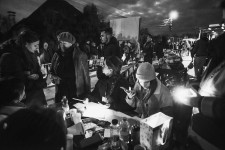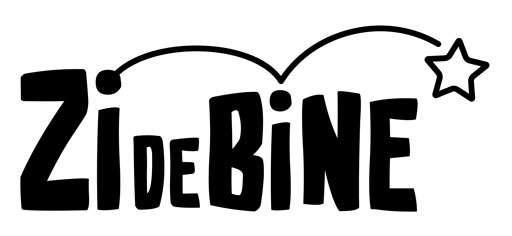"What can I do?", Maricica Ciubara asked herself as the war drove millions of Ukrainians to seek safety beyond their borders. Fluent in Romanian, Ukrainian and Russian, the young woman headed to Isaccea customs to help the frightened and desperate people find their way through a neighbouring but completely unfamiliar country.
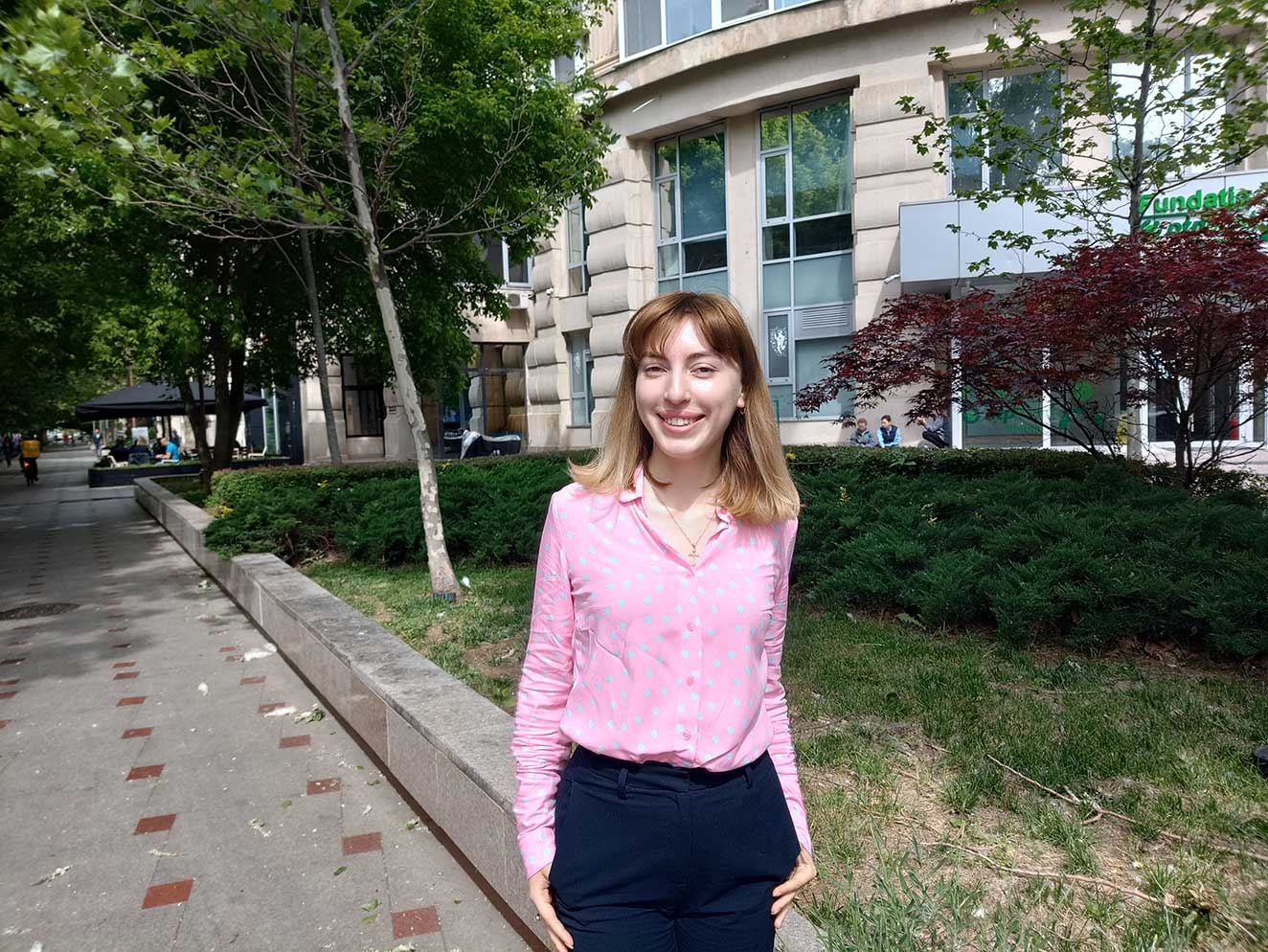
In the beginning was the word... It was the words of basic survival: "Are you in pain?", "Let's get you to a doctor", "Have a bottle of water", "Here's a blanket". After countless hours of travelling and waiting to board the ferry connecting Ukraine and Romania, people arrived from the river bank of war to the riverside of peace, drained of strength. "I never saw more sorrow in my life, but sorrow is an understatement. There were so many children, so many grandparents, some of them could hardly move, and it was so cold. Many of them never left their country before getting to Romania, nor would they ever want to", the young woman recalls.
Since the beginning of the armed conflict, around four million Ukrainians have passed through Romania, according to Border Police data. Most moved on or returned home, but about 100,000 temporarily found a new home in our country. Maricica Ciubara tries to help those who have stayed and now need a new tool to adapt to their new life: the Romanian language. So she's moved from hastily translated words for customs to teaching Romanian language classes and integrating Ukrainian children in Romanian schools.
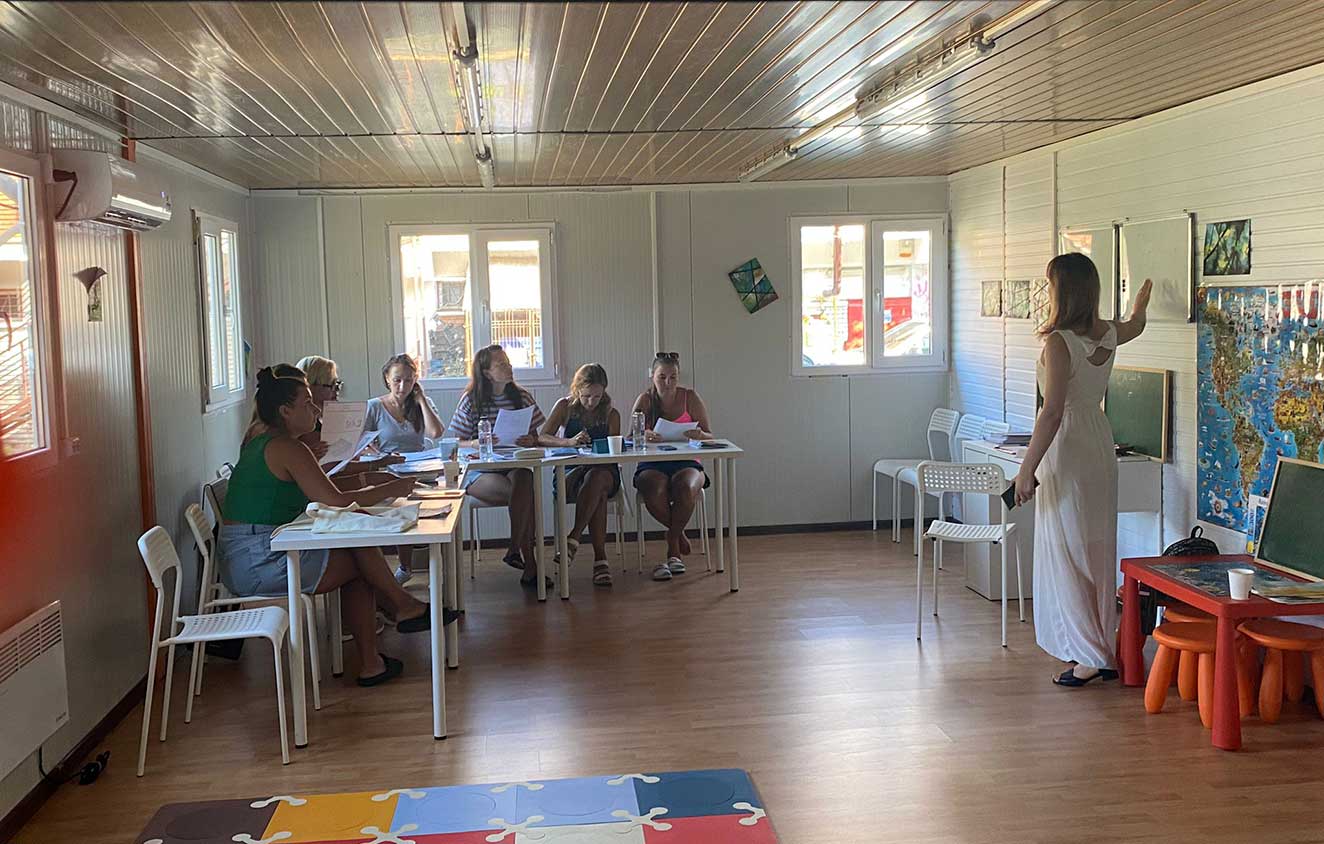
She is 29 years old, was born in the Bălți region of the Republic of Moldova and she has Ukrainian origins thanks to her father, whose grandparents are from Lviv. She moved to Romania ten years ago, graduated Journalism and Communication Sciences at the University of Bucharest and worked for publications and TV stations in Romania and Ukraine. She studied Russian and Ukrainian at school and remembers that, used to the Latin alphabet at home, she made huge efforts to decipher the Cyrillic as a child. Feeling helpless back then allows her nowadays to understand the difficulties pupils have when learning a new alphabet. Shortly after the outbreak of the war, when she was asked to teach Romanian to Ukrainians, Maricica faced a new challenge: "How to teach something so difficult to learn?"
"Do it the same way, but reversed!"
"My mother is a teacher and she herself works with the Social Welfare Department of the Republic of Moldova to support refugees. I called and asked her: How can I help these people learn Romanian? My mother told me: Remember how hard it was for you to learn the Cyrillic alphabet? Do the same way, but reversed. If you try to teach Romanian as if you were teaching it to a Romanian, it will never work," she says. When she couldn't find any Romanian textbooks for Slavic speakers, she started creating her own lessons, focusing on teaching the alphabet and pronunciation.
"You have to complete intensive courses in alphabet and pronunciation before you can move on and write your name or where you're from. That's the table head, if you don't get that right it's very hard to move on. Pronunciation is very important when moving from a language with many consonants to one with many vowels. It takes a lot of practicing diction, I felt this first hand when I went through the reverse learning process," explains Maricica.
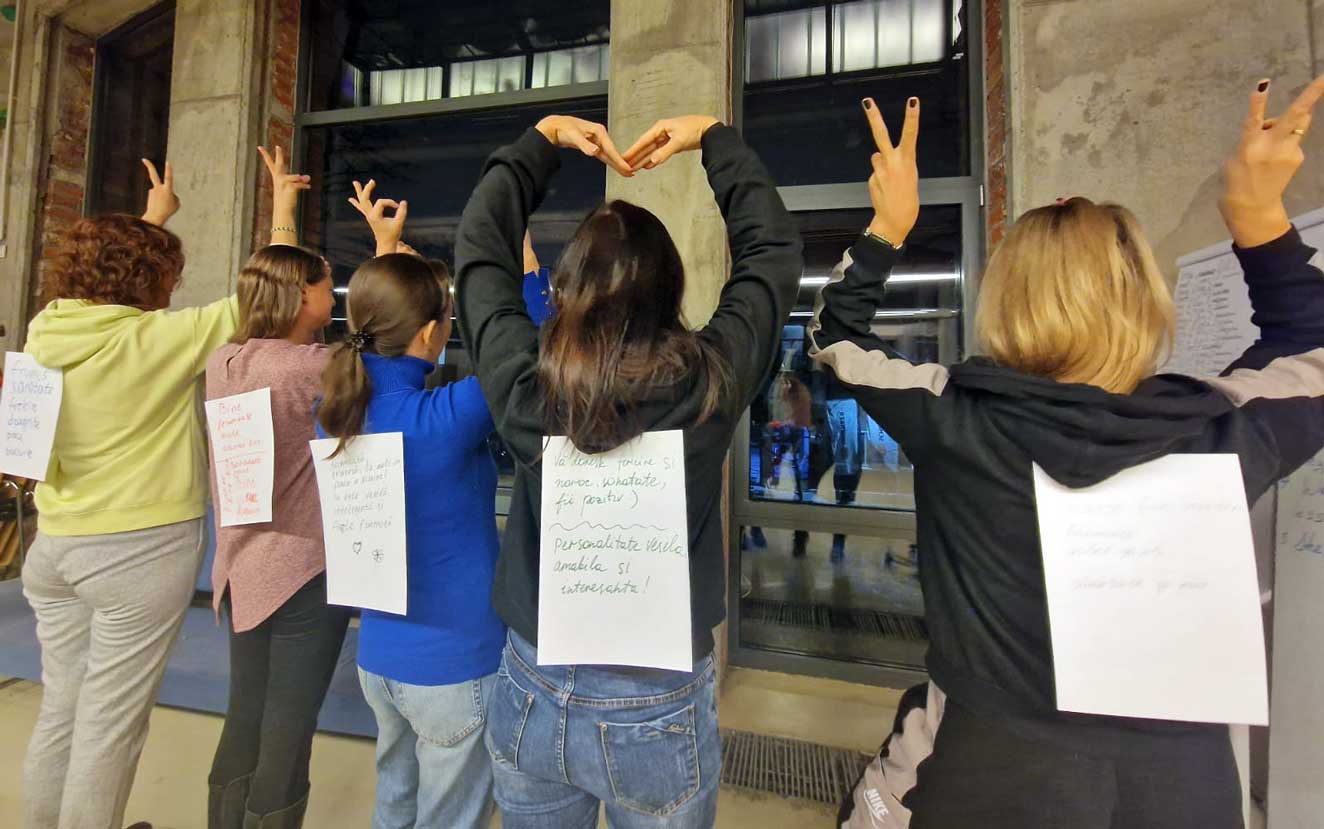
Another key element was choosing the right examples to be covered in class, designed to reflect the life situations that Ukrainians encountered in Romania every day, from going to the shop to seeing a doctor or dealing with the authorities for temporary accommodation. "When I was developing my course materials, I was looking for the best examples, illustrated in images that would help them intuitively understand what it was all about. At the end of each lesson, I would assign them homework, and not the kind of homework we hated in school, but homework that would keep them engaged in learning Romanian. For example, I would ask them to write a word that begins and ends with certain letters of the alphabet. My greatest satisfaction was that they would come to class afterwards and say: We went to the shop and handled it ourselves. We went to the market and were able to do it on our own. We managed to get one bus ticket, one metro ticket." she says.
Transliteration manual
In the years following the outbreak of the war, she worked with various organisations to help Ukrainian refugees and hosted many Romanian language courses. After a while, she realised she collected an impressive amount of educational resources.
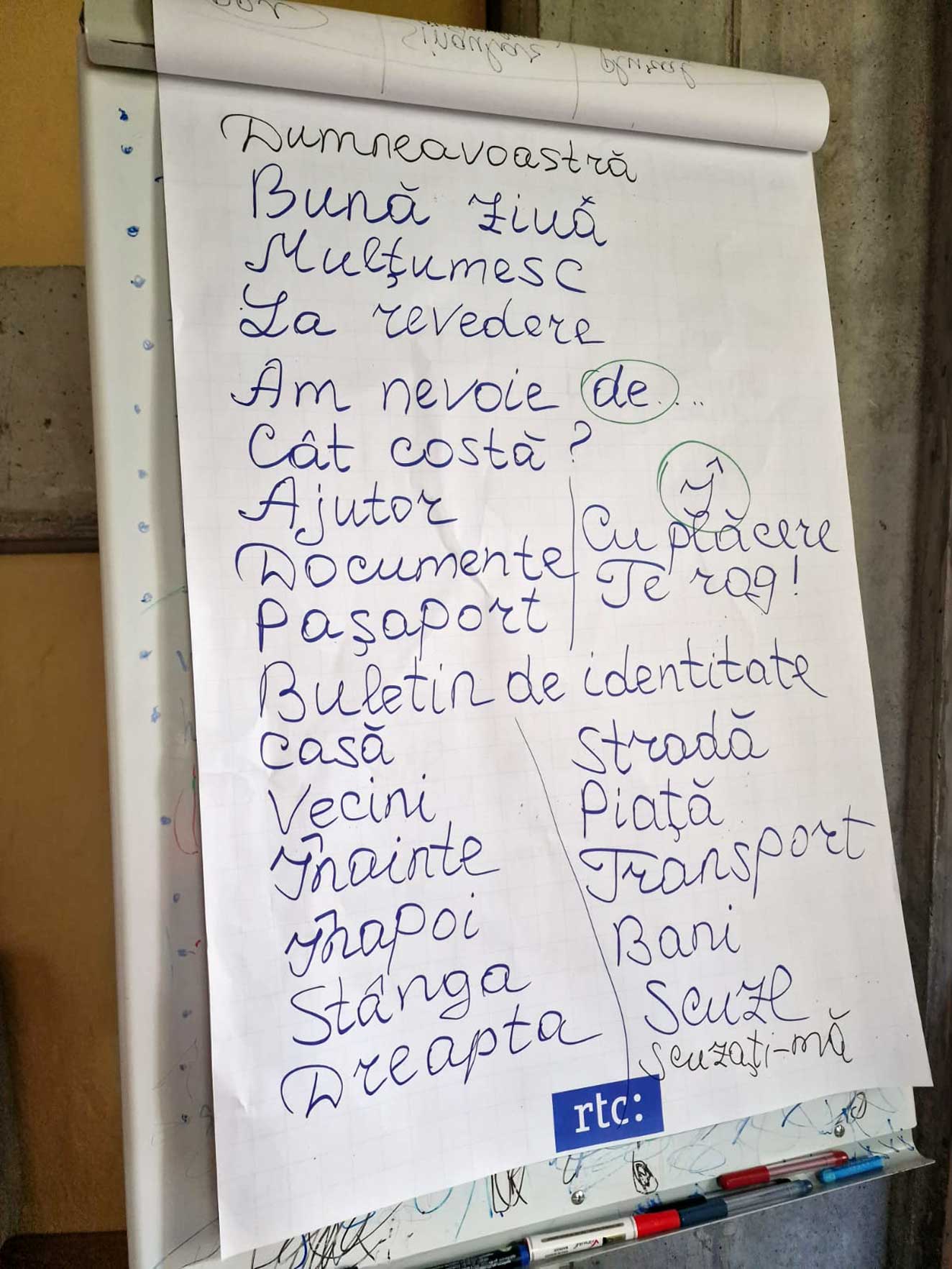
"So I said to myself that, since I had created all these resources responding to the needs of Ukrainians in Romania, after discussing them with the community here, why not put them together in a handbook that more people could access. All the subjects in the handbook are inspired by real cases, because I kept asking the learners where they had difficulties communicating. It's a handbook with transliteration of Romanian as a foreign language that organisations, schools and even individual Ukrainians can use, because it allows for individual study," argues Maricica Ciubara, adding that she is already in discussions with several organisations and that the handbook might get published this summer.
She is currently working with UNICEF and the Bucharest School Inspectorate to support Ukrainian parents in the process of enrolling their children in Romanian schools. A year after the war began, around 3,800 Ukrainian children were enrolled as audients in the Romanian education system, and the number of applications recently started to increase, says Maricica Ciubara. However, she also noticed Romanians' increasing reluctance to help Ukrainian citizens. "I would ask people to think that children are always the future of any nation. By helping Ukrainian children, Romanian children will also be indirectly provided more help. Because once this misery is over, the assistance, the infrastructure that international organisations provide to Romania, everything will continue to be available to Romanian institutions.













